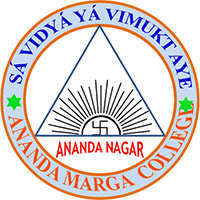Subjects
ANANDA MARGA COLLEGE

ENGLISH - Language is important because it's one of the main ways to communicate and interact with other people around us. It keeps us in contact with other people. English language is the international language and has become the most important language 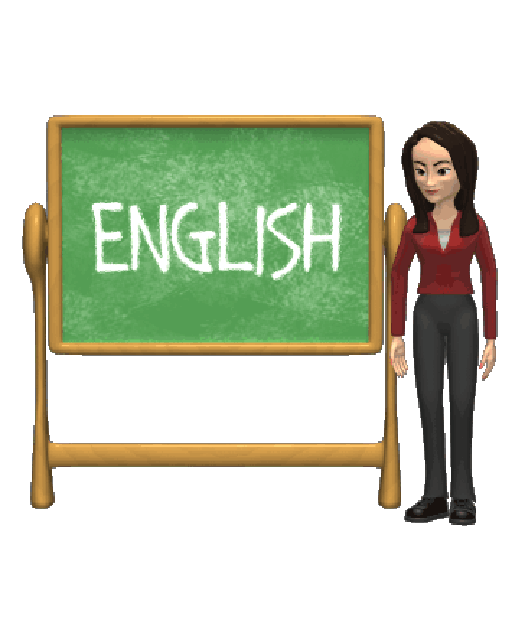 to people in many parts of the world. It is the official language of 53 countries and spoken by around 400 million people across the globe.
to people in many parts of the world. It is the official language of 53 countries and spoken by around 400 million people across the globe. 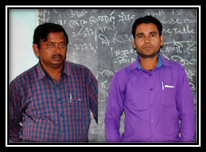 The benefits of learning English can be seen in the economic, social and political life of the people of the country. English is the dominant business language and it has become almost a necessity for people to speak English if they are to enter a global workforce. If India wants to play her role in international matters effectively, her people must study English as an important foreign language. It must also continue to be the medium of instruction, at least in science and technology, and in other subjects also in higher classes. English is the language of the internet and it gives access to more of the Internet. Thus, keeping you updated in all spheres of life including news, information, technologies, entertainment, etc.
The benefits of learning English can be seen in the economic, social and political life of the people of the country. English is the dominant business language and it has become almost a necessity for people to speak English if they are to enter a global workforce. If India wants to play her role in international matters effectively, her people must study English as an important foreign language. It must also continue to be the medium of instruction, at least in science and technology, and in other subjects also in higher classes. English is the language of the internet and it gives access to more of the Internet. Thus, keeping you updated in all spheres of life including news, information, technologies, entertainment, etc.
Famous English writers of India - Amrita Pritam ,Jhumpa Lahiri, Khushwant Singh, R. K. Narayan, Rabindranath Tagore, Ruskin Bond , Anita Desai, Vikram Seth , Arundhati Roy ,Sarat Chandra Chattopadhyay , Salman Rushdie, Mulk Raj Anand, Chetan Bhagat.
HINDI - हिंदी शब्द की उत्पत्ति संस्कृत भाषा के सिन्धु शब्द से हुई है सिन्धु नदी के क्षेत्र में आने कारण ईरानी लोग सिन्धु न कहकर हिन्दू कहने लगे जिसके कारण यहाँ के लोग हिन्द, हिन्दू और हिंदुस्तान कहलाने लगे । हिंदी भाषा को लिखने के लिए देवनागरी लिपि का प्रयोग किया जाता है । 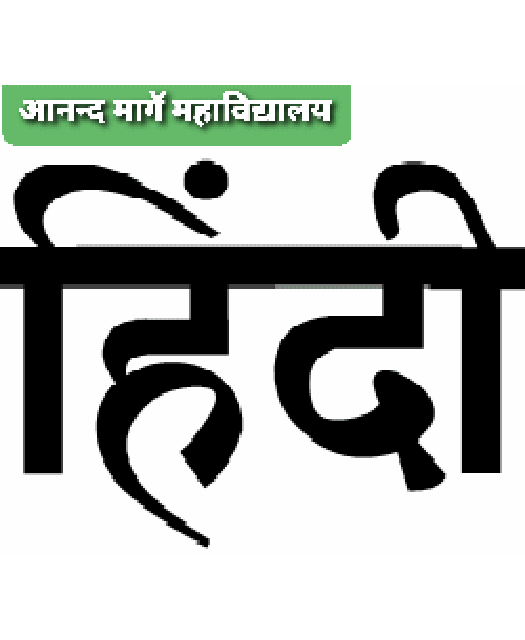 भारत में अनेक भाषा और बोलिया बोली जाती है। हमारे देश में इतनी भाषाए है की ये कहावत कही गयी है - “ कोस कोस पर बदले पानी और चार कोस पर वानी”। हिंदी भारत की सवैंधानिक राजभाषा है जिसे 14 सितम्बर 1949 को अधिकारिक रूप से राष्ट्रभाषा का दर्जा दिया गया । हिंदी भाषा एक ऐसी भाषा है जिसमे त्रुटी न के बराबर है अर्थात हिंदी भाषा जो लिखी जाती है वही बोली भी जाती है ।
भारत में अनेक भाषा और बोलिया बोली जाती है। हमारे देश में इतनी भाषाए है की ये कहावत कही गयी है - “ कोस कोस पर बदले पानी और चार कोस पर वानी”। हिंदी भारत की सवैंधानिक राजभाषा है जिसे 14 सितम्बर 1949 को अधिकारिक रूप से राष्ट्रभाषा का दर्जा दिया गया । हिंदी भाषा एक ऐसी भाषा है जिसमे त्रुटी न के बराबर है अर्थात हिंदी भाषा जो लिखी जाती है वही बोली भी जाती है । 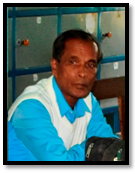 'हिन्दी साहित्य' हिन्दी भाषा का रचना संसार है। साहित्यकार देवकीनन्दन खत्री द्वारा लिखे गये उपन्यास चंद्रकांता को हिन्दी की पहली प्रामाणिक गद्य रचना मानते हैं।
'हिन्दी साहित्य' हिन्दी भाषा का रचना संसार है। साहित्यकार देवकीनन्दन खत्री द्वारा लिखे गये उपन्यास चंद्रकांता को हिन्दी की पहली प्रामाणिक गद्य रचना मानते हैं।
किसी भी राष्ट्र की पहचान उसके भाषा और उसके संस्कृति से होती है और पूरे विश्व में हर देश की एक अपनी भाषा और अपनी एक संस्कृति है जिसे छाव में उस देश के लोग पले बड़े होते है । यदि कोई देश अपनी मूल भाषा को छोड़कर दुसरे देश की भाषा पर आश्रित होता है उसे सांस्कृतिक रूप से गुलाम माना जाता है । हमे दुसरो की भाषा सीखने का मौका मिले तो यह अच्छी बात है लेकिन दुसरो की भाषा के चलते अपनी मातृभाषा को छोड़ना पड़े तो यह गलत है ।
निज भाषा उन्नति अहै, सब उन्नति को मूल। बिन निज भाषा-ज्ञान के, मिटत न हिय को सूल।।
विविध कला शिक्षा अमित, ज्ञान अनेक प्रकार। सब देसन से लै करहू, भाषा माहि प्रचार।।
शब्दार्थ – निज यानी अपनी मूल भाषा से ही उन्नति सम्भव है, क्योंकि यही सारी हमारी मूल भाषा ही सभी उन्नतियों का मूलाधार है। और मातृभाषा के ज्ञान के बिना हृदय की पीड़ा का निवारण सम्भव नहीं है। हमे विभिन्न प्रकार की कलाएँ, असीमित शिक्षा तथा अनेक प्रकार का ज्ञान सभी देशों से जरूर लेने चाहिये, परन्तु उनका प्रचार मातृभाषा में ही करना चाहिये ।
महान हिन्दी साहित्यकार - मुंशी प्रेमचंद ,धर्मवीर भारती, कृष्णा सोबती, बिषम साहनी, कमलेश्वर, पनिश्वर नत्थु ‘रेनु’, विष्णु प्रभाकर, अमृता प्रीतम, श्री लाल शुक्ला, यशपाल।
महानतम हिंदी कवि - कबीर, अब्दुल रहीम खान-ए-खाना, रामधारी सिंह दिनकर, सूर्यकांत त्रिपाठी Ja निराला ’, जयशंकर प्रसाद, सुमित्रानंदन पंत, महादेवी वर्मा, हरिवंश राय बच्चन, मैथिलीशरण गुप्त, माखनलाल चतुर्वेदी।
अनमोल वचन ~
- हिन्दी भाषा और हिन्दी साहित्य को सर्वांगसुंदर बनाना हमारा कर्त्तव्य है। – डॉ. राजेंद्रप्रसाद
- हिन्दी संस्कृत की बेटियों में सबसे अच्छी और शिरोमणि है। – ग्रियर्सन
- संस्कृत माँ, हिन्दी गृहिणी और अंग्रेजी नौकरानी है। – डॉ. फादर कामिल बुल्के
- राष्ट्रभाषा के बिना राष्ट्र गूँगा है। – महात्मा गाँधी
- समस्त भारतीय भाषाओं के लिए यदि कोई एक लिपि आवश्यक हो तो वह देवनागरी ही हो सकती है। – (जस्टिस) कृष्णस्वामी अय्यर
- देश में मातृ भाषा के बदलने का परिणाम यह होता है कि नागरिक का आत्मगौरव नष्ट हो जाता है, जिससे देश का जातित्व गुण मिट जाता है। – सैयद अमीर अली मीर
 HISTORY - Famous philosopher George Santayana once said, "A country without memory is a country of madmen". History is something that has happened and is factual. . History helps us to know about the rich culture and heritage of our ancestors. History tells us about the courage and valour showed by different rulers and emperors across the globe who fought for their motherland. History is a great way to explore how many people and societies interacted within their time. Many historians put in many hard efforts to create theories about human behaviour and interaction in their environment. In order to understand the present and the mechanism, it is essential to know about the past and comprehend it.
HISTORY - Famous philosopher George Santayana once said, "A country without memory is a country of madmen". History is something that has happened and is factual. . History helps us to know about the rich culture and heritage of our ancestors. History tells us about the courage and valour showed by different rulers and emperors across the globe who fought for their motherland. History is a great way to explore how many people and societies interacted within their time. Many historians put in many hard efforts to create theories about human behaviour and interaction in their environment. In order to understand the present and the mechanism, it is essential to know about the past and comprehend it. 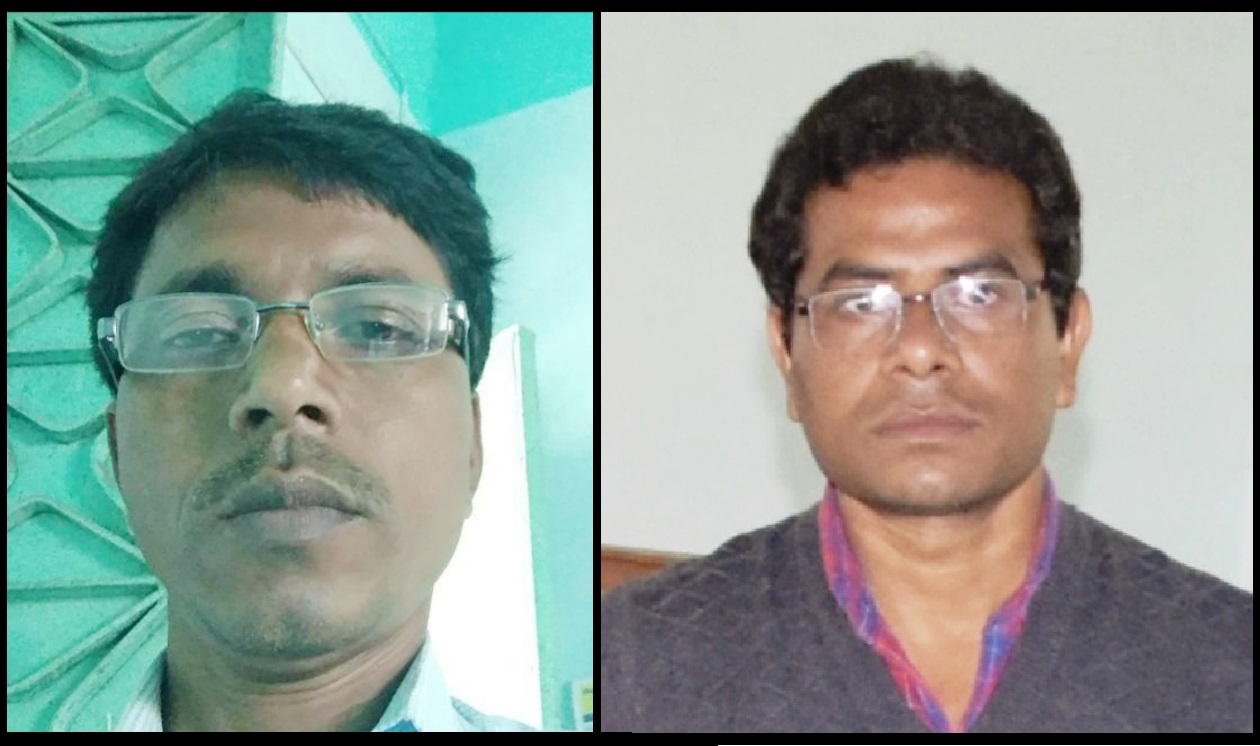
Famous historians from India are- -K.A. Nilakanta Sastri, B. A. Saletore, Hazari Prasad Dwivedi, Barun De, Sahajanand Saraswati, Rahul Sankrityayan, S. T. Joshi, Bipan Chandra, Dipesh Chakrabarty, Romila Thapar.
GEOGRAPHY - Geography is the study of places and the relationships between people and their environments. In Greek, geo means “earth” and -graphy means “to write.” The ancient Greeks, needed a word to describe the writings and maps that were helping them make sense of the world in which they lived. 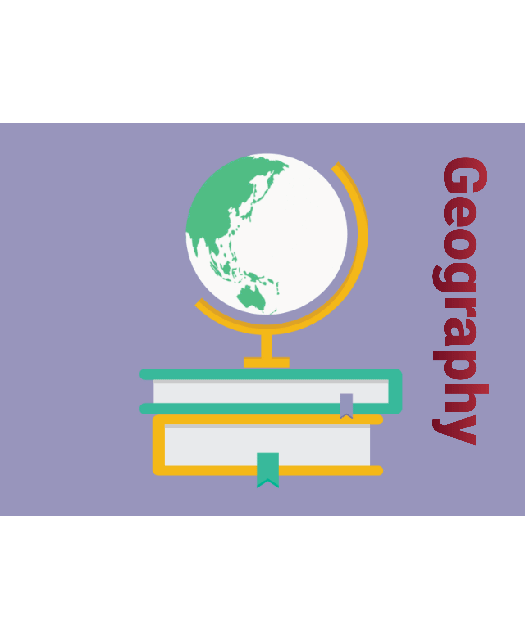 Geography is a systematic study of the Universe and its features. The ancient Greek scholar Eratosthenes (c. 276 BCE to c. 195 BCE) is commonly called the "father of geography" for he was the first to use the word geography and he had a small-scale notion of the planet that led him to be able to determine the circumference of the earth. Abraham Ortelius published first world atlas on May 22, 1570. Geography is often defined in terms of two branches: human geography and physical geography. Human geography deals with the study of people and their communities, cultures, economies, and interactions with the environment by studying their relations with and across space and place. Physical geography deals with
Geography is a systematic study of the Universe and its features. The ancient Greek scholar Eratosthenes (c. 276 BCE to c. 195 BCE) is commonly called the "father of geography" for he was the first to use the word geography and he had a small-scale notion of the planet that led him to be able to determine the circumference of the earth. Abraham Ortelius published first world atlas on May 22, 1570. Geography is often defined in terms of two branches: human geography and physical geography. Human geography deals with the study of people and their communities, cultures, economies, and interactions with the environment by studying their relations with and across space and place. Physical geography deals with 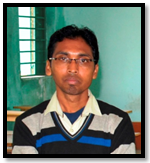 the study of processes and patterns in the natural environment like the atmosphere, hydrosphere, biosphere, and geosphere.
the study of processes and patterns in the natural environment like the atmosphere, hydrosphere, biosphere, and geosphere.
The oldest known world maps date back to ancient Babylon from the 9th century BC. Meteorology is a branch of the atmospheric sciences with a major focus on weather forecasting. Palaeogeography is the study of historical geography, generally physical landscapes. It also includes the study of human or cultural environments. Oceanography, also known as oceanology, is the study of the physical and biological aspects of the ocean. It is an important Earth science, which covers a wide range of topics, including ecosystem dynamics; ocean currents, waves, plate tectonics and the geology of the sea floor. An oceanographer is a person who studies many matters concerned with oceans including marine geology, physics, chemistry and biology.
Ancient Indian Geography - In ancient times, India was much more extended to the North West and west (consisting of parts of modern Pakistan and Afghanistan). The Himalayas lay to the north as they are today. In ancient period there were many other rivers like Indus, Ravi, Sutlej, and Saraswati. In the northern part of India stand the Himalayan Mountains and the Hindu Kush stand in the North West. The southern region of India is surrounded by three bodies of water. They are the Arabian Sea to the south west; the Indian Ocean on the southern side and to the southeast lay the Bay of Bengal.
Indian Geographers - Shiba P. Chatterjee, Chandrasekhar Dhundiraj Deshpande, Majid Husain, Vaibhav Kaul, Dorothy Middleton.
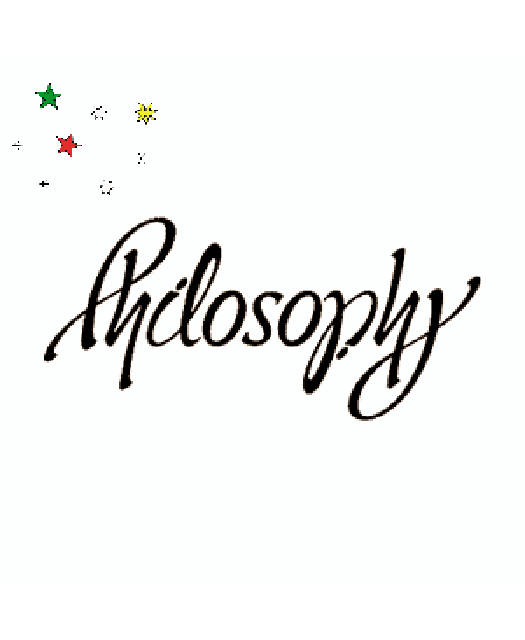 PHILOSOPHY – The meaning of the word 'Philosophy' is 'love of wisdom'. It comes from the Greek word 'Philosophia', with 'Philo' meaning 'beloved' and 'Sophia' meaning 'wisdom'. Philosophy is the practice of making and assessing arguments. An argument is a set of statements (called premises) that work together to support another statement (the conclusion). Making and assessing arguments can help us get closer to understanding the truth. At the very least, the process helps make us aware of our reasons for believing what we believe, and it enables us to use reason when we discuss our beliefs with other people. Your philosophy teacher wants to help you learn to make strong arguments and to assess the arguments other people make.
PHILOSOPHY – The meaning of the word 'Philosophy' is 'love of wisdom'. It comes from the Greek word 'Philosophia', with 'Philo' meaning 'beloved' and 'Sophia' meaning 'wisdom'. Philosophy is the practice of making and assessing arguments. An argument is a set of statements (called premises) that work together to support another statement (the conclusion). Making and assessing arguments can help us get closer to understanding the truth. At the very least, the process helps make us aware of our reasons for believing what we believe, and it enables us to use reason when we discuss our beliefs with other people. Your philosophy teacher wants to help you learn to make strong arguments and to assess the arguments other people make.
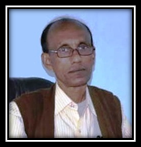
Famous Indian Philosophers – Maharishi Kapil, Maharishi Patanjali, Mimangsa Badarayan Vyas, Mahavir Jain, Nyaya philosopher Gautama, Gautam Buddha, Chanakya, Adi Shankaracarya, Guru Nanak, Ishwar Chandra Vidyasagar, Ram Mohan Roy, Dayananda Saraswati, Dr. BR Ambedkar, Mohandas K. Gandhi, S. Chandrasekhar, Swami Vivekananda, Prabhat Ranjan Sarkar.
Famous Quotations –
- The only thing I know is that I know nothing – Socrates
- I think therefore I am - René Descartes
- There is only one good, knowledge, and one evil, ignorance – Socratesa
- Leisure is the mother of philosophy – Thomas Hobbes
- We are what we repeatedly do. Excellence, then, is not an act, but a habit – Aristotle
- You can discover more about a person in an hour of play than in a year of conversation – Plato
- Religion is the sign of the oppressed; it is the opium of the people – Karl Marx
- Your ideal is represented by your conduct. Your learning, your social or economic status have nothing to do with your ideal -Shrii Prabhat Ranjan Sarkar
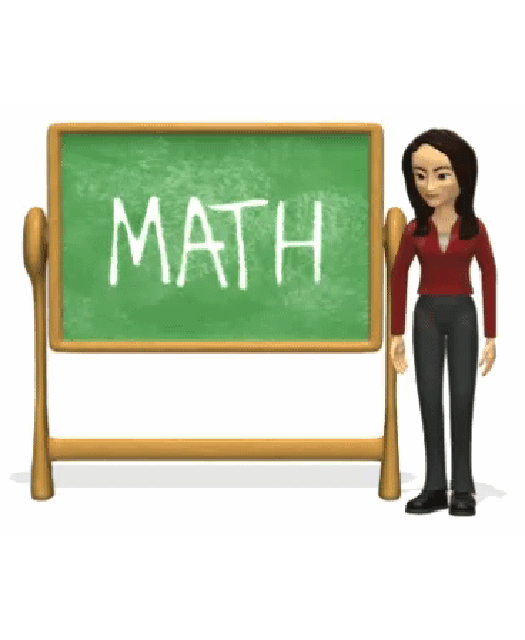 MATHEMATICS – Mathematics is the study of numbers, shapes and patterns. The word comes from a Greek word “mathema” meaning knowledge or learning. Mathematical problems can serve as a source of motivation for students if the problems engage students' interests and aspirations. Mathematics is the key to opportunity and building block for everything in our lives.
MATHEMATICS – Mathematics is the study of numbers, shapes and patterns. The word comes from a Greek word “mathema” meaning knowledge or learning. Mathematical problems can serve as a source of motivation for students if the problems engage students' interests and aspirations. Mathematics is the key to opportunity and building block for everything in our lives. 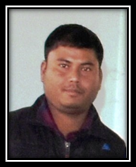 Mathematics now contributes in direct and fundamental ways to livelihood, education, technology, business, finance, stock market, health, and defense. For students, it opens doors to careers. For citizens, it enables informed decisions. For nations, it provides knowledge to compete in a technological community.
Mathematics now contributes in direct and fundamental ways to livelihood, education, technology, business, finance, stock market, health, and defense. For students, it opens doors to careers. For citizens, it enables informed decisions. For nations, it provides knowledge to compete in a technological community.
Great Indian Mathematicians - Baudhayana, Aryabhata, Brahmagupta, Varahamihira, Bhaskara Ach. I & II, Srinivasa Ramanujan, P.C. Mahalanobis, C.Radhakrishna Rao, D. R. Kaprekar, Satyendranath Bose
Great Quotations ~
- As far as the laws of mathematics refer to reality, they are not certain, and as far as they are certain, they do not refer to reality - Albert Einstein
- Pure mathematics is, in its way, the poetry of logical ideas - Albert Einstein
- The study of mathematics, like the Nile, begins in minuteness but ends in magnificence - Charles Caleb Colton
- Mathematics is not about numbers, equations, computations, or algorithms: it is about understanding. –William Paul Thurston
- Without mathematics, there’s nothing you can do. Everything around you is mathematics. Everything around you is numbers. –Shakuntala Devi
 PHYSICS - The main goal of physics is to explain how things move in space and time and understand how the universe behaves. It studies matter, forces and their effects. The realm of Physics indeed begins from microscopic sub-atomic particles to massive supernova. Physics has played a critical role in the intellectual and technical progress of human race. Be it the invention of the wheel or the Large Hadron Collider, an innate knowledge of how physical objects move and interact with each other has been an important part of every innovation and design. Students of this vast and intriguing discipline are exposed to complex subjects such as Electromagnetism, Gravitational Forces, Mechanics, Thermodynamics and many more.
PHYSICS - The main goal of physics is to explain how things move in space and time and understand how the universe behaves. It studies matter, forces and their effects. The realm of Physics indeed begins from microscopic sub-atomic particles to massive supernova. Physics has played a critical role in the intellectual and technical progress of human race. Be it the invention of the wheel or the Large Hadron Collider, an innate knowledge of how physical objects move and interact with each other has been an important part of every innovation and design. Students of this vast and intriguing discipline are exposed to complex subjects such as Electromagnetism, Gravitational Forces, Mechanics, Thermodynamics and many more.
Einstein’s interpretation was that light does not really have mass, but that energy is affected by gravity just like mass is, given by the famous equation E=mc2, where c is the speed of light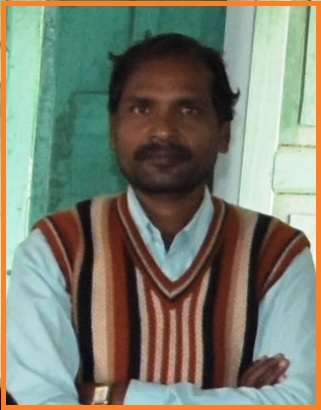 .
.
Eminent Indian Physicists – Sir CV Raman, Satyendranath Bose, Meghnad Saha, Homi Jehangir Bhabha, Subrahmanyan Chandrasekhar, Vikram Sarabhai, G.N Ramachandran, Jayant Narlikar, Harish Chandra, Sandip Chakrabarti. N.S.Kapany, Dr.APJ.Kalam.
Great Quotations ~
- The black holes of nature are the most perfect macroscopic objects there are in the universe: the only elements in their construction are our concepts of space and time. – S. Chandrasekhar
- Science without religion is lame, religion without science is blind. ― Albert Einstein
- Inventions and contributions have changed the face of Science – Sir C.V. Raman
- Nothing in life is to be feared, it is only to be understood. Now is the time to understand more, so that we may fear less. ― Marie Curie
- You cannot teach a man anything; you can only help him discover it in himself. – Galileo
- One, remember to look up at the stars and not down at your feet. Two, never give up work. Work gives you meaning and purpose and life is empty without it. Three, if you are lucky enough to find love, remember it is there and don't throw it away. ― Stephen Hawking
- Two things are infinite: the universe and human stupidity; and I'm not sure about the universe. - Albert Einstein
- Just because something doesn`t do what you planned it to do doesn`t mean it`s useless.- Thomas Alva Edison
 CHEMISTRY - Chemistry is involved in everything we do, from growing and cooking food to cleaning our homes and bodies to launching a space shuttle. It is the study of matter, its properties, how and why substances combine or separate to form other substances, and how substances interact with energy. Chemistry is one of the physical sciences that help us to describe and explain our world.
CHEMISTRY - Chemistry is involved in everything we do, from growing and cooking food to cleaning our homes and bodies to launching a space shuttle. It is the study of matter, its properties, how and why substances combine or separate to form other substances, and how substances interact with energy. Chemistry is one of the physical sciences that help us to describe and explain our world.
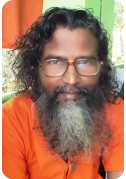 It holds the key to making new drugs, creating new materials, and understanding and controlling material properties of all sorts. It is no wonder then that chemistry is called the "Central Science" because it provides a foundation for understanding both basic and applied scientific disciplines at a fundamental level. Traditional chemistry starts with the study of elementary particles, atoms, molecules, substances, metals, crystals and other aggregates of matter.
It holds the key to making new drugs, creating new materials, and understanding and controlling material properties of all sorts. It is no wonder then that chemistry is called the "Central Science" because it provides a foundation for understanding both basic and applied scientific disciplines at a fundamental level. Traditional chemistry starts with the study of elementary particles, atoms, molecules, substances, metals, crystals and other aggregates of matter.
However, modern researchers have found that MICROVITA are catalyzing agents that play a key role in building and maintaining both physical structures (atoms and subatomic particles) and pure energy. Microvita is smaller than subatomic particles and it is believed that "billions of microvita consolidates to form one atom". Microvita is present in both positive as well as negative form of energy. For details visit - http://www.microvita.info/
Eminent Indian Scientists - Nagarjuna, Sir Jagadish Chandra Bose, Acharya Sir Prafulla Chandra Ray(father of chemical science in India), Venkatraman Ramakrishnan, Govindarajan Padmanaban, Dr Keki Hormusji Gharda, Gautam Radhakrishna Desiraju, Garikapati Narahari Sastry, Debashis Mukherjee, C. N. R. Rao, Animesh Chakraborty. 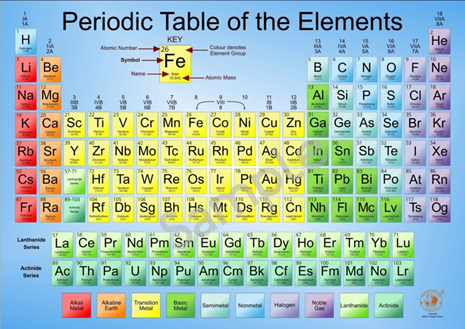
Famous Quotations –
- "Chemistry can be a good and bad thing. Chemistry is good when you make love with it. Chemistry is bad when you make crack with it." - ADAM SANDLER
- Chemistry begins in the stars. The stars are the source of the chemical elements, which are the building blocks of matter and the core of our subject. - PETER ATKINS
- We think there is color, we think there is sweet, we think there is bitter, but in reality there are atoms and a void. - DEMOCRITUS
- Chemistry is necessarily an experimental science: its conclusions are drawn from data, and its principles supported by evidence from facts - MICHAEL FARADAY
- “Chemistry, unlike other sciences, sprang originally from delusions and superstitions, and was at its commencement exactly on a par with magic and astrology.” - THOMAS THOMSON
BIOLOGY - Biology also known as Life Sciences is the study of all living beings. Right from the smallest algae or microorganism to the biggest living being is covered under biology. How microorganisms live,  how do they function and how they affect other living beings is studied in biology. There are several divisions of biology, and it is divided based on the type of subject it is dealing with. For example, if the study is about extinct dinosaurs, it is called paleontology. So, biology encompasses everything about life which does not exist anymore and which exists everywhere. It also means to know the laws by which all living organisms exist. A human - is at first a part of nature, and only then the creator of civilization. All of us come from nature and return there. Biology studies the life in different ways: its structure, the functions of the organisms, the behavior, relationships with each other and the environment, and also the individual and historical development of the living creatures.
how do they function and how they affect other living beings is studied in biology. There are several divisions of biology, and it is divided based on the type of subject it is dealing with. For example, if the study is about extinct dinosaurs, it is called paleontology. So, biology encompasses everything about life which does not exist anymore and which exists everywhere. It also means to know the laws by which all living organisms exist. A human - is at first a part of nature, and only then the creator of civilization. All of us come from nature and return there. Biology studies the life in different ways: its structure, the functions of the organisms, the behavior, relationships with each other and the environment, and also the individual and historical development of the living creatures.
Biology has 2 main branches – Botany (Study of Plant Life) and Zoology (Study of Animal Life). Cell theory is the Foundation of modern biology and they are broadly categorized under Kingdom Classification. Medical profession, Agriculturists, Veterinarians, Forensics are few scopes of this subject.
Eminent Indian Biologists - Acharya Sushruta, Acharya Charaka, Jagadish Chandra Bose, William Roxburgh,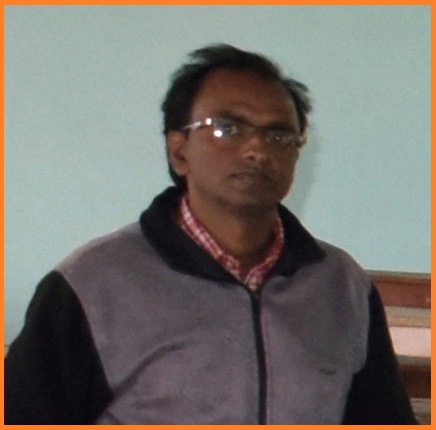 Birbal Sahani , Har Gobind Khorana, Samir K. Brahmachari, Dr. Lalji Singh, Prof. M. Vijayan, M S Swaminathan, B P Pal, K C Mehta, Shiv Ram Kashyap, Panchanan Maheshwari.
Birbal Sahani , Har Gobind Khorana, Samir K. Brahmachari, Dr. Lalji Singh, Prof. M. Vijayan, M S Swaminathan, B P Pal, K C Mehta, Shiv Ram Kashyap, Panchanan Maheshwari.
Famous Quotations –
- A man who dares to waste one hour of time has not discovered the value of life. ― Charles Darwin
- Biology is the most powerful technology ever created. DNA is software, proteins are hardware, and cells are factories. - Arvind Gupta
- Everything that human beings or living animals do is done by protein molecules. And therefore the kind of proteins that one has and therefore the ability one has is determined by the genes that one has. - , Har Gobind Khorana
- "This world is for the survival of the fittest" – Charles Darwin
- It is the mark of an educated mind to be able to entertain a thought without accepting it. —Aristotle
